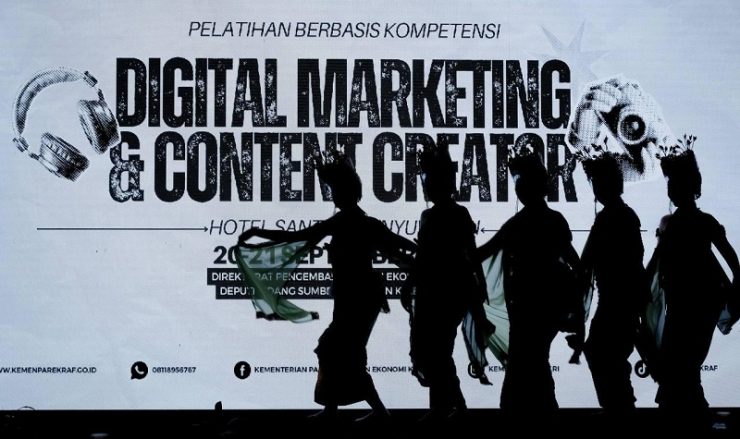TRAINING, certification and empowerment is one of the leading programs of the Ministry of Tourism and Creative Economy in cooperation with various parties, which has proven effective in increasing the competence and competitiveness of tourism and creative economy human resources (HR).
According to the Ministry’s Senior Expert staff, Nia Niscaya, during “The Final Episode of Weekly Brief with Sandi Uno” at Sapta Pesona Building, Central Jakarta, on Monday (10/14), 2024, said the Ministry of Tourism and Creative Economy from 2020 to 2024 in collaboration with various parties to develop various programs to create superior and competitive tourism and creative economy human resources.
“A total of 27,200 tourism stakeholders and 54,302 creative economy stakeholders have received competency training. Meanwhile, 63,412 tourism and creative economy actors have been given certification facilities,” Nia stated.
To measure the impact of the training and certification program, the Ministry of Tourism and Creative Economy, through the Deputy for Resources and Institutions, in cooperation with NHI Bandung Tourism Polytechnic, conducted an impact survey on this strategic program. The survey was conducted on 1,143 tourism and creative economy stakeholders from 34 provinces with the highest number of respondents being the millennial generation, namely 57.7%.
According to the results, the human resource development training and certification program in the tourism and creative economy sector has had a positive impact. Especially in terms of increased income, new job opportunities and career development.
In detail, the survey results show that most of the employees in the tourism and creative economy sectors have been working for more than five years. 64.5% in the tourism sector and 49.6% in the creative economy sector. According to the NIA, these figures indicate that the tourism and creative economy sectors have a high degree of stability with experienced and established workers in their respective fields.
On the other hand, the percentage of workers who have been employed between one and three years is also quite high in both the tourism and creative economy sectors. That is, more than 20% each.
“This indicates a relatively rapid renewal and entry of new workers. This also reflects the dynamic growth of the tourism sector and the creative economy, with many opportunities for new workers,” she noted.
Nia further explained that training for human resource development in tourism and the creative economy has also had various impacts. These include increased income, opportunities for new jobs, increased knowledge, promotion, expanded relationships and recognition, and several other benefits.
“As many as 60.3% of the respondents said they experienced an increase in income, while 52.8% experienced career advancement. The largest percentage increase in income is 15 to 20%,” Nia added.
The survey results also showed that the training suitability index reached 4.16 (index value 5), reflecting the relevance of the training program to industry needs, and a success index of 3.80, indicating that the training had a fairly good impact in improving the competency of the participants. In terms of ease, a score of 3.91 indicates that this training is quite easy for participants to follow.
“This survey also reached 36.2% of HRD who had never attended training to find out their expectations for the training field of interest. In addition to hotel or accommodation business training and understanding of tourist attractions or destinations, the fields of marketing, entrepreneurship, design and content creator training also have great interest,” she explained.
The survey results also showed that 71.5% of HR competency certification activities for tourism and the creative economy were still facilitated by the government. Meanwhile, the private sector only contributed 4.5%. Just like training, certification also provides various impacts such as increased income, opportunities to get new jobs, increased knowledge, promotion, and several other benefits. As many as 52.2% of respondents experienced an increase in income while 11.2% experienced career advancement. The largest percentage increase in income was 15-20%.
“This still shows the dominant role of the government. We hope that the private sector will play a more active role, so that the certification program can be more inclusive and cover more workers,” concluded Nia. [traveltext.id]
















